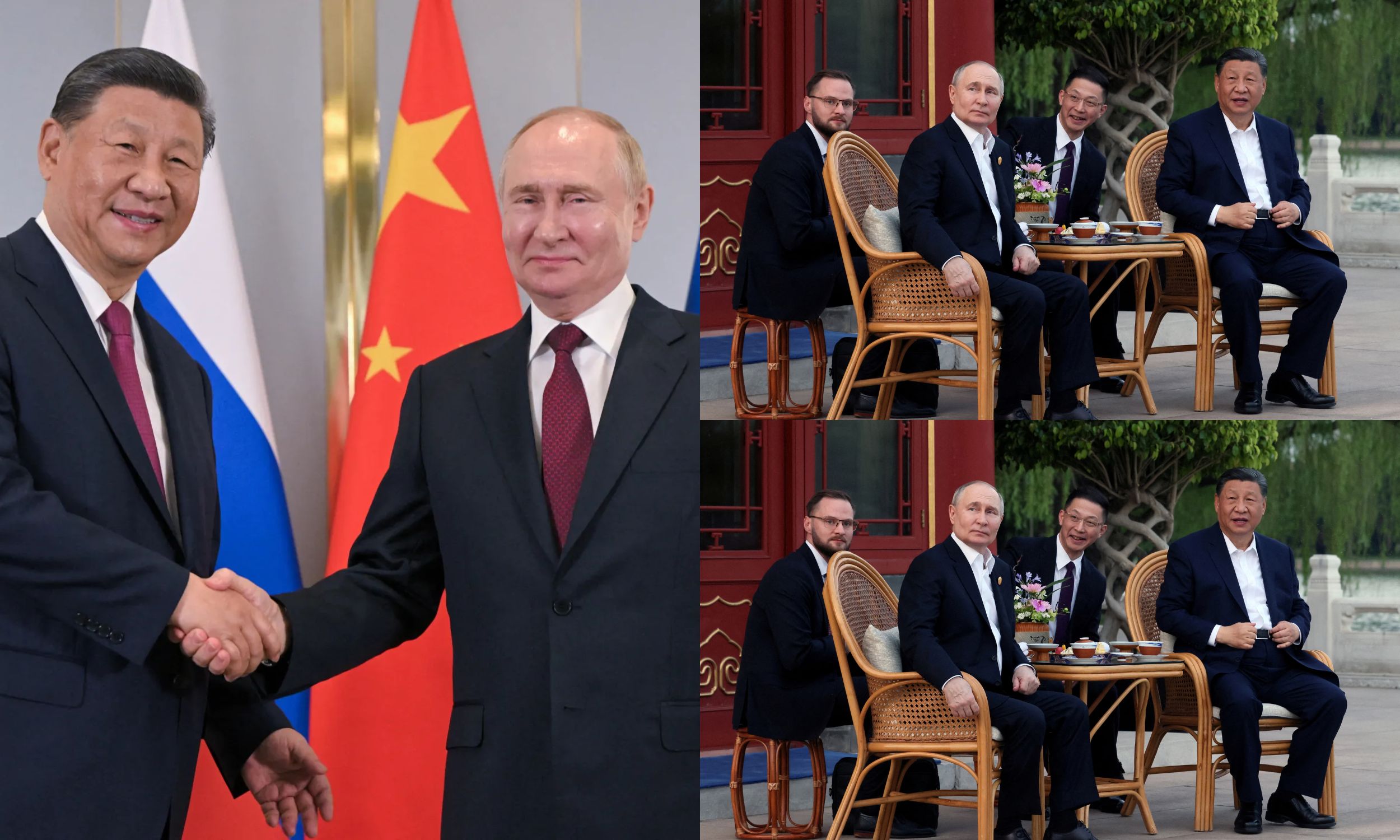Chinese foreign ministry spokesperson Lin Jian urged calm and restraint on November 20, emphasizing the importance of reducing strategic risks through dialogue and consultation. This statement followed Vladimir Putin’s approval of a decree lowering the threshold for nuclear strikes.
Beijing’s remarks could suggest concerns about escalating tensions in Ukraine. However, deciphering the true stance of China’s leadership is often challenging. It is highly likely that President Xi Jinping finds Putin’s nuclear threats against Ukraine advantageous.

This perspective stems from two main factors.
To begin with, Beijing’s actions over the last few years indicate unwavering support for Russia’s war efforts. China tacitly endorsed the invasion, as evidenced by a joint declaration with Russia on February 4, 2022, affirming a “no limits” partnership just weeks before the attack. Putin seemingly postponed the assault to accommodate the Beijing Winter Olympics, reflecting alignment with China’s preferences.
From the outset, China has bolstered Russia with diplomatic, financial, and military aid, including sending personnel to maintain Chinese-supplied drones utilized by Wagner Group mercenaries. Analysts report that these advisors even joined combat operations alongside the mercenaries.
Xi values Putin as a partner because he embodies actions Xi aspires to emulate—disrupting global stability. Drawing from Mao Zedong’s strategy of fostering chaos, Xi sees Putin as a key ally in sowing international disorder, particularly through nuclear threats.
China and Russia function as de facto allies, united by shared adversaries like the United States and mutual strategic interests, even though their ultimate goals diverge. While Putin seeks to restore Russia’s imperial glory, Xi aims for global dominance. Their collaboration includes joint military exercises and synchronized policies.
For China, Russia’s success in Ukraine is critical, and Xi likely views the use of any means necessary, including nuclear weapons, as justified.
China’s own history of nuclear threats mirrors Putin’s rhetoric. Despite officially pledging not to initiate nuclear attacks, Beijing has repeatedly made explicit threats, targeting nations like Japan, Australia, and the United States over various geopolitical tensions.
In 2013, state media detailed potential nuclear strikes on American cities, a move indicative of directives from top leadership.
Putin has closely observed China’s nuclear posturing. Although many believe his threats are bluffs, his recent actions—such as responding to U.S.-made missile strikes in Russian territory by lowering the threshold for nuclear use—underscore his unpredictability.
Some experts warn that the world will only recognize Putin’s seriousness if he follows through with a nuclear strike, though by then, it may be too late.
As for China, experts argue its leadership might welcome the fallout from a Russian nuclear strike, which could weaken Europe, the U.S., and Russia, leaving China in a stronger position to pursue its ambitions. Richard D. Fisher, Jr. from the International Assessment and Strategy Center noted that while China calls for calm publicly, it would likely exploit any resultant chaos to advance its own aggressive objectives.
